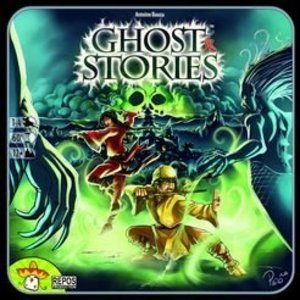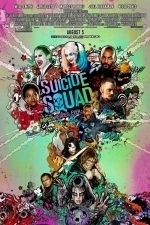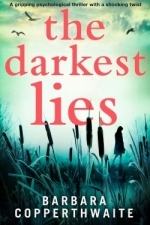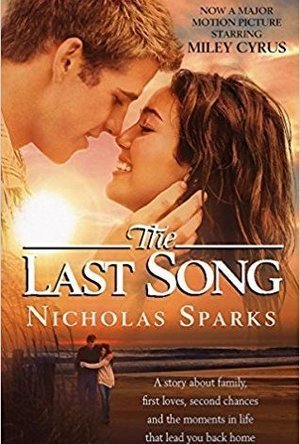
Ultimate Angry Shark Simulator 3D
Games and Entertainment
App
Sharks are the ultimate, dangerous, horrific and terrifying creatures underwater. The great white...
Matthew Krueger (10051 KP) rated Ghost Stories in Tabletop Games
Jul 28, 2020 (Updated Jul 30, 2020)
Gameplay:
Each Player represents a Taoist monk working together with the others to fight off waves of ghosts.
The players, using teamwork, will have to exorcise the ghosts that appear during the course of the game. At the beginning of his turn, a player brings a ghost into play and places it on a free spot, and more than one can come in at the same time. The ghosts all have abilities of their own – some affecting the Taoists and their powers, some causing the active player to roll the curse die for a random effect, and others haunting the villager tiles and blocking that tile's special action. On his turn, a Taoist can move on a tile in order to exorcise adjacent ghosts or to benefit from the villager living on the tile, providing it is not haunted. Each tile of the village allows the players to benefit from a different bonus. With the cemetery, for example, Taoists can bring a dead Taoist back to life, while the herbalist allows to recover spent Tao tokens, etc. It will also be possible to get traps or move ghosts or unhaunt other village tiles.
To exorcise a ghost, the Taoist rolls three Tao dice with different colors: red, blue, green, yellow, black, and white. If the result of the roll matches the color(s) of the ghost or incarnation of Wu-Feng, the exorcism succeeds. The white result is a wild color that can be used as any color. For example, to exorcise a green ghost with 3 resistance, you need to roll three green, three white, or a combination of both. If your die rolls fall short, you can also use Tao tokens that match the color in addition to your roll. You may choose to use these after your roll. Taoists gain these tokens by using certain village tiles or by exorcising certain ghosts. One of the Taoists has a power that allows him to receive such a token once per turn.
To win, the players must defeat the incarnation of Wu-Feng, a boss who arrives at the end of the game. There are also harder difficulty levels that add more incarnations of Wu-Feng, in which to win, you must defeat all of them.
There are many more ways to lose, however. The players lose if three of the village's tiles are haunted, if the draw pile is emptied while the incarnation of Wu-Feng is still in play, or if all the priests are dead.
It is hard game but the strategy to this game is excellent cause you have to think about your moves and what to do next. That and the clock is ticking down to one of the ten Wu-Feng Minions. Also if 3 village spaces get crushed than you lose. Also the luck of the dice and the cards. The strategy is ten fold. Its hard but a excellent game and a must play game. Buy it if you havent already cause its a must. If you want to learn more or see a runthrough of the game go to BoardGameGeek, Rahdo Runthroughs or Dice Tower Reviews.
Emma @ The Movies (1786 KP) rated Fantasy Island (2020) in Movies
May 5, 2020
A group of strangers arrive on an island, this experience will give them their deepest desires. Wish for it and you can live it, all you have to do is see it through to the end on Fantasy Island.
Evidently, Nic Cage turned down the role of Mr Roarke... I didn't know that he turned down any roles so that (if true) should have been a massive warning sign.
I do have to wonder how some of these stories come about. This is based on the 70's TV show of the same name which was entirely not scary as far as I know. Is there a giant bingo cage full of ping pong balls inscribed with names of old shows and films? Do they just let studios try their luck to spin whatever they get to their niche?
Twisting this tale is a pretty good idea, though I'm not really sure why an island would want to do that to people, but what do I know about malevolent black goop spirits? I was generally on board with the storyline and I thought it wove them together quite well but that ending... are you kidding me? There was some speculation thrown out about what was going on and that thread was believable. The one they gave us was laughable, the absolute worst choice. Had they done a small reshuffle they could have given a much less ridiculous conclusion.
There are a lot of different threads and each one has its moments, as daft as they might be they come together quite well even when the filler is poor.
Maggie Q's performance as Gwen felt like the most believable out of the whole ensemble, but that's not really a surprise from her. Gwen is basically the only decent person in the group and throughout her stay she is the one that's grounded and tries to deal with her situation. That should give us something good to work off... but she's kind of bland on screen compared to everything else.
Michael Peña is always a pull to a movie for me, but Roarke's story wasn't all the effective. Had he been a construct of the island then there might have been something in it, but as it was you didn't get any real struggle with his actions, I couldn't see how a character that wasn't portrayed as actively evil could go along with any of it even given his background.
While the rest of the cast is filled with faces you'd know there isn't really a great performance to be seen. From unlikeable characters to a script that's not amusing when it tries to be, what's left of the film is plain in a glossy kind of way, and by that I mean it's got the makings of something good but misses anything that could have made an impact. The effects are fine for the most part and the sets are fine when you take into consideration they're supposed to be a fantasy and don't need to fit together perfectly. The exception is Roarke's door that Maggie Q interacts with, I liked that move and I don't know whether the rest of the film might have benefitted from something similar.
Bits of the film are quite good and could have made for an exciting watch, but that ending was so frustrating that any enjoyment went straight out the window and any thrill from what I'd already seen was gone. Also, considering it is classified as horror there wasn't really enough, or anything of quality, too make that a reality. Untapped potential in abundance here.
Originally posted on: https://emmaatthemovies.blogspot.com/2020/05/fantasy-island-movie-review.html

Toca Life: Hospital
Education and Entertainment
App
Experience the excitement of a busy medical center with Toca Life: Hospital! Welcome newborn babies...

BeatBurn Treadmill Trainer - Walking, Running, and Jogging Workouts
Health & Fitness and Sports
App
BeatBurn uses lolo's exclusive BEAT-SYNC technology, changing the beat of your music to perfectly...
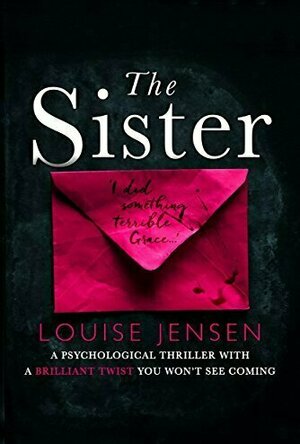
The Sister
Book
‘I did something terrible Grace. I hope you can forgive me…’ Grace hasn't been the same...
Bob Mann (459 KP) rated Suicide Squad (2016) in Movies
Sep 29, 2021
The story concerns the efforts of Amanda Waller (Viola Davis) to assemble – for reasons that make almost zero sense! – the ‘worse of the worst’ out of US prisons to form a fighting force to combat the perceived threat of an “anti-Superman” villain that *might* appear in the future.
SUICIDE SQUAD
Viola Davis wondering Why? Just Why?
Among these super-villains are Deadshot (Will Smith) and Harley Quinn (Margot Robbie). Harley is the girlfriend of The Joker (Jared Leto) and they would be a great match on Match.com since both are several sandwiches short of a picnic.
Waller assembles her motley crew. Unfortunately, another of the super-villains is June Moon aka “The Enchantress” (Cara Delevingne, her of the scary eyebrows) – an ancient God-like being that has possessed June and who has her/its own agenda that threatens the whole world.
So why is this movie so frustrating? Because for all its inane silliness the film does have its fair share of scenes that stick in the mind. I’ve seen comment that Jared Leto’s much-vaunted Joker is peripheral: a cameo only on screen for a few minutes. But I didn’t find that… or at least his scenes were sufficiently memorable to seem much more substantial. The madness portrayed here is truly quite disturbing and threatening. Many of Leto’s scenes – such as the one with The Joker lying on the floor surrounded by weapons – are artfully done.
Margot Robbie’s Quinn although extremely sexualized – which will not be to the liking of some, but appeal to many male viewers – adds enormous charisma to her role. Will Smith also does his best with the material he has to inject some emotional heft into the father/daughter sub-plot.
Unfortunately this is all done against a fractured and frankly nonsensical story with inconsistencies and loose ends too numerous to list. (Oh, OK, I’ll do a few):
A super-being dispatches armies and nukes from hundred of miles away, yet can’t swat a couple of inconvenient humans at 10 paces?
A large early part of the film is filled with backstories (which I don’t necessarily object to for context) but here they are done in an extremely patchy manner: a number of the characters are sketched out so lightly that they might as well be wearing the red Star Trek shirts!
Waller’s motivations (and certainly her sociopathic actions at some points in the plot) are nebulous and don’t bear scrutiny. Why exactly does she thing a ‘bloke who can shoot well’ can do diddly-squat against a super-being spewing gravity defying electrical displays on the other side of the city?
Is this really a ‘Dirty Dozen’? Many of the super-villains seem to be not so bad after all… you know… with consciences and everything…. (I’m sure you could find ten times worse down behind Southampton docks on a Friday night).
And while some of the cinematography (Roman Vasyanov, “Fury”) and lighting is memorable, there are some cinema basics (like dark subtitles on a dark background) that seem just plain careless.
With a huge BvS quotient of 0.7 this should really have been much better. To put it another way, you could have made ten of last week’s 4-Fad film “The Shallows” for the cost of this (and stuck a better ending on it with the change).
Memorable visuals, but not a memorable film.
Chris Hooker (419 KP) rated No Way Home (A Science Fiction Anthology) in Books
Jan 12, 2018
[To Sing of Chaos and Eternal Night] by [Lucas Bale] took me a few days to get past the beginning. The concept of a soldier who has lost all being and is just thought sent to robotic bodies and told to fight the enemy was interesting. As I stated, unfortunately, it was a slow start but the ending was worth the read.
[XE, or People Are Strange] by [S. Elliot Brandis]gave a new meaning to getting away from it all. The main character, Bradley, volunteers to be put in a shuttle to find a new habitable plant. His mission is one way and he is to send a signal back to Earth if it is a safe place. Apparently, though, he is not the first, or only, person on the new planet. I really liked the twist in this story.
[Grist] by [J.S. Collyer] is a futuristic view where one entity has taken control and all others are forced to work for them, often underground. Wyatt was not born into this so he remembers fresh air and sun. He wants to escape and be free again. Just daring to think this way can be deadly and he must know who to trust. The question this story had me asking was what is life worth?
[Merely A Madness] by [S.W. Fairbrother] was one I was really excited to see in this collection because I had read [The Secret Dead] and loved it. [Merely A Madness] did not disappoint in anyway. Earth has become a hostile place but most people have escaped off planet. Hannah loves old earth and Mullen sets up a holiday because he aims to please. This would be like current day people going to a wild west ranch, real but not too real. Things go horribly wrong and Mullen must make a hard choice. This story was one of my favorites by far.
[Revolver] by [Michael Patrick Hicks] was the most overtly political and also one of the most enjoyable. The concept of reality TV and politics preying on the unfortunates is so scary because it is not far from our current reality. I really loved the statement made in this one.
[The Happy Place] by [Harry Manners] was a story of a dream gone horribly wrong. Michael has always dreamed of going to the stars and with his wife this dream becomes a reality as he is chosen to colonize Mars. Years later he realizes his dream may be a nightmare as he begins to lose everything he loves. The only thing that keeps him going is 'the Happy Place', a virtual reality of his memories from Earth, but keeping this secret from those he loves may cost him even more. This is the third work I have read from [Harry Manners] and I love how he handles loneliness and making hard decisions. His characters are always deeper than they first appear.
[Renata] by [Nadine Matheson] is a futuristic spy story wrapped in a mob hit with political intrigue. Yes, I enjoyed this one as well. Kaoru is an assassin who gets his assignments from his brother. His latest target is in the past. This is the assignment that may just kill him.
[Cold Witness] by [A.S. Sinclair] was a mental thriller. John Marshall is sent to check out an abandoned military complex that he is told little about. When he arrives there he hears rumors of strange things involving the final project at the base. Upon arrival he begins hallucinating and his memories begin to meld with others. The question of what is reality is constant throughout.
All the stories were well written and enjoyable. I also liked how each author wrote an "Afterword" that explained a little of how they came up with the concept they did. I recommend this to any fan of futuristic and science fiction.
Jamie (131 KP) rated The Darkest Lies in Books
Jul 26, 2017
I’m going to come right out and say that this book was frustrating for me. The synopsis really caught my eye and the idea for the plot is intriguing. Unfortunately, issues with the protagonist as well as a shaky and highly predictable plot made for a mediocre experience.
The narration in this book was a little bit weird and I had a hard time getting used to it. It is primarily told using first person point of view though switches regularly to second person as Melanie speaks directly to Beth in her inner monologue. It was just uncomfortable to read.
What’s so bad about first person point of view? See the issue for me with first person narration is that it’s easy to end up alienating readers if it’s difficult to relate to the narrator, and boy did I dislike Melanie. To be blunt, she was really annoying. She was self-centered, mean-spirited, often blinded by her own hubris, and near the end has a bit of a messiah complex going which I found completely ridiculous. She was constantly complaining about the police’s incompetence, throwing herself in the way of the investigation despite being asked multiple times to back off before she could destroy their leads. “I couldn’t go home. I was too furious, too desperate to prove I was right and the police were wrong.”
I get it, she’s consumed with guilt and grief over what happened to her daughter, over not being able to protect her. Desperate people tend to lash out and do stupid things, but I just couldn’t believe anyone would be so foolish. Melanie’s antics do lead up to something important in the plot, but honestly she didn’t need any help making a fool of herself. Before all the crazy came out she was constantly breaking down every female character she encountered, often focusing in on their looks and finding ways to insult them. Neighbors, police officers working on the case, teenagers, it didn’t matter. There are numerous examples of Melanie exhibiting this jealous personality throughout the course of the book.
She spends more time going on drunken rampages pointing fingers at everyone in town, harassing the police, treating her husband like garbage while emotionally cheating with a friend, and avoiding actually seeing and being there for her daughter. While her awful actions over the course of the book is an important aspect of the plot, I just couldn’t justify it because she never learns and remains stubborn even after being told off multiple times. Add on top how stereotypically reckless she acts at the end instead of seeking help from the police because of course she doesn’t need them and I just couldn’t dig the story.
I liked the central idea around the dangers of teens sneaking out and trusting strangers, but the story meandered so much it kind of gets lost in Melanie’s mental collapse and crazed search for the culprit. The plot attempts to use some misdirection to keep the reader guessing but the construction was just sloppy, and the actual culprit isn’t even the character that Melanie cares about the most. Every “bad” character is so blatantly obvious that the advertised twist is really easy to see. I kept on reading because I wanted to know the how and the why. I think there was potential here, and if the author wanted to stick to the narrative that Mel is actually really nice and is just being manipulated then why does she remain every bit as petty and controlling? She is still unable to see past her own emotions and unable to learn from her mistakes. I wished that this could’ve ended with more character growth for the main character.
Haley Mathiot (9 KP) rated The Last Song in Books
Apr 27, 2018
When she finds Will, the cutest volley-ball players slash aquarium volunteer in her back yard helping her protect un-hatched sea turtles from being eaten by raccoons, she judged him as not-her-type. She doesn’t expect to find a friend in a jock-rich-perfect-family boy, nor does she expect that this will be the best—most exciting, most scary, most fun, most painful—summer of her lifetime.
My Review: I’m not really sure where to start here, other than I am so utterly pleased with The Last Song, I cannot begin to find words to describe it.
Ronnie, Jonah (her brother), Her dad Steve, Will… all the characters really, were such real characters. I felt everything they felt, I laughed when they laughed, and I (nearly) cried when they cried.
I hate it when books suffer from "happy-land syndrome—" where everything works out just too perfectly that it seems silly. The Last Song seemed to work perfectly, but it didn’t have that plot-manipulated feel to it. It didn’t feel like Sparks was just trying to move the story along and causing things to line up too perfectly to be realistic—it felt like the story was writing itself, and it was perfect. The pacing didn’t feel rushed or slow. It was not a thriller, but I did find myself sitting on the edge of my seat dying to find out what happens. I read it through in two or three days (which is fast for me right now, what with school the way it is!). There are twists, there are surprises—some beautiful, some painful, but all wonderful.
The writing was contemporary. It was easy reading and it wasn’t Dostoevsky, but it wasn’t bad either. The humor was light and witty and sarcastic, sometimes laugh out loud, and more times than I can count my sister would look up from her homework and say “Haley. What is so funny?” The perspective alternated between several different characters, but it wasn’t disorientating. It was all from third person perspective, but I still felt like I could get inside the character’s head.
The end was perfect. That’s all I can really say about it because any information would totally ruin the story. All the loose ends were tied, all the questions were answered, and the ending was open to the future but closed in a wonderful conclusion. Suffice to say I grinned so wide I couldn’t see, and my cheeks are still sore.
Audio Review: Let’s just say that I almost gave up reading The Last Song when I started listening to the audio. Pepper Binkley read Ronnie’s perspective and had a high pitched voice, she read a little too fast (which is rare. Most of the time readers are way too slow), there was no differentiating between voices of characters so you couldn’t tell who was talking, and she seemed up tight and nervous. Scott Sowers read the various men’s perspectives, and he read alright. He was a little slow and his voice took some getting used to but he was otherwise ok. I did get too frustrated to get far in the audio book though. I ended up quitting and reading the paperback. I recommend reading The Last Song over listening to it.
Content: blissfully clean. There was romance between Will and Ronnie, but no sex. It wasn’t needed, either. I feel like the fact that they didn’t sleep together added to the book rather than took away from it. It was also clean of foul language. There was some mention of God and the Bible, but never did it feel like Sparks was preaching.
Recommendation: Ages 14+
